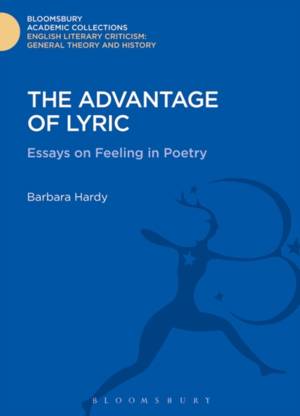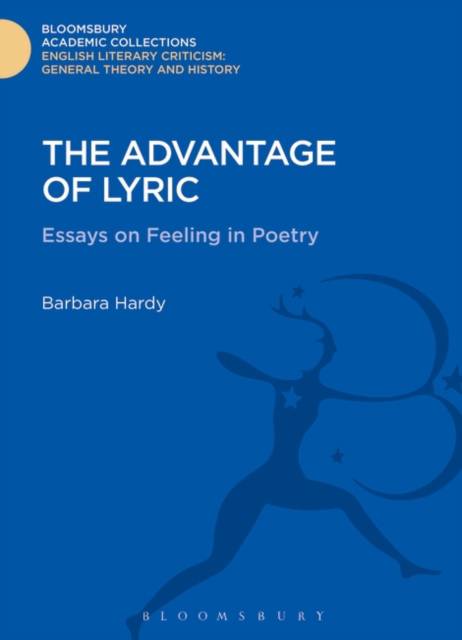
Bedankt voor het vertrouwen het afgelopen jaar! Om jou te bedanken bieden we GRATIS verzending (in België) aan op alles gedurende de hele maand januari.
- Afhalen na 1 uur in een winkel met voorraad
- In januari gratis thuislevering in België
- Ruim aanbod met 7 miljoen producten
Bedankt voor het vertrouwen het afgelopen jaar! Om jou te bedanken bieden we GRATIS verzending (in België) aan op alles gedurende de hele maand januari.
- Afhalen na 1 uur in een winkel met voorraad
- In januari gratis thuislevering in België
- Ruim aanbod met 7 miljoen producten
Zoeken
Omschrijving
In the title essay, Professor Hardy argues for the special advantage of lyric over other other literary genres in conveying intense private feelings publicly. She then gives detailed consideraton to the lyric poetry of John Donne, Arthur Hugh Clough, and a group of poets central to the modernist canon: Hopkins, Yeats, Aden, Dylan Thomas, and Sylvia Plath. Those interested in W.H. Auden will find the book of particular value, since Auden occupies a central place in it. W.H. Auden has frequently been held up as the modern example par excellence of a 'public poet' whose works betray relatively little in the way of personal emotion. In the cahpters entitled 'The Reticence of W.H. Auden, Thirties to Sixties: A Face and a Map' barbara Hardy shows the inadequacy of that characterization and opens the way for a fresh appreciation of Auden's achievement as a poet. Readers interested in modern poetry genearlly and all readers acquainted with Barara Hardy's previous books will the book of importance.
Specificaties
Betrokkenen
- Auteur(s):
- Uitgeverij:
Inhoud
- Aantal bladzijden:
- 144
- Taal:
- Engels
- Reeks:
Eigenschappen
- Productcode (EAN):
- 9781472505194
- Verschijningsdatum:
- 8/05/2014
- Uitvoering:
- Hardcover
- Formaat:
- Genaaid
- Afmetingen:
- 156 mm x 234 mm
- Gewicht:
- 399 g

Alleen bij Standaard Boekhandel
+ 644 punten op je klantenkaart van Standaard Boekhandel
Beoordelingen
We publiceren alleen reviews die voldoen aan de voorwaarden voor reviews. Bekijk onze voorwaarden voor reviews.









